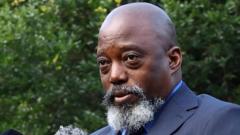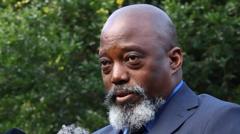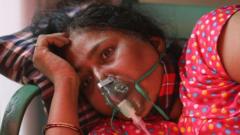The cancellation of critical mRNA vaccine projects by US Health Secretary RFK Jr. has sparked a fierce debate on vaccine efficacy and safety, with many experts warning of potential setbacks in infectious disease preparedness.
"RFK Jr's Decision to Halt mRNA Vaccine Funding Raises Concerns Among Experts"

"RFK Jr's Decision to Halt mRNA Vaccine Funding Raises Concerns Among Experts"
Experts debate the implications of Robert F. Kennedy Jr.'s controversial decision to withdraw $500 million in funding for mRNA vaccine research.
Robert F. Kennedy Jr., the US Health Secretary known for his vaccine skepticism, has sparked controversy with his recent decision to cancel 22 mRNA vaccine projects that would have received a substantial funding boost of $500 million. While Kennedy believes the science behind mRNA vaccines is flawed—asserting they fail to provide adequate protection against upper respiratory infections like COVID-19 and influenza—health experts are expressing significant concern over the repercussions of this decision.
Professor Adam Finn from the University of Bristol categorizes the situation as a double-edged sword but condemns Kennedy's stance as "stupid" and potentially disastrous for public health. According to Kennedy, the future of vaccine research should pivot toward "safer, broader vaccine platforms" that may be more effective against evolving viruses. However, the scientific community remains divided, with many pointing to the successful track record of mRNA vaccines during the pandemic.
Prominent vaccine researcher, Professor Andrew Pollard from the Oxford Vaccine Group, strongly refutes Kennedy's claims, asserting that mRNA vaccines have consistently demonstrated their safety and efficacy during global trials. The deployment of mRNA vaccines, especially products like the Pfizer/BioNTech vaccine, has reportedly saved millions of lives in the first year of the COVID-19 vaccination campaign, despite the minor risks associated with certain side effects.
Moreover, experts indicate that the concerns about updating mRNA vaccines for new variants should not overshadow the technology's proven effectiveness, especially given that many viruses mutate quickly. Pollard emphasizes that all types of vaccines will face similar challenges as they try to keep up with rapidly changing viral landscapes.
Kennedy's withdrawal of funding could have severe consequences for the future of mRNA technology, which is considered vital in responding to emerging outbreaks, such as the bird flu virus, H5N1. Researchers argue that the ability of mRNA technology to generate vaccines quickly outpaces traditional methods, a characteristic crucial during public health emergencies.
The implications of this decision extend beyond COVID-19, raising questions about the future of mRNA applications. Could this backlash deter investment in related fields, such as cancer treatment and therapies for genetic disorders? As the world watches, the fallout from Kennedy's dismissal of mRNA technology might shape the landscape of public health for years to come.





















